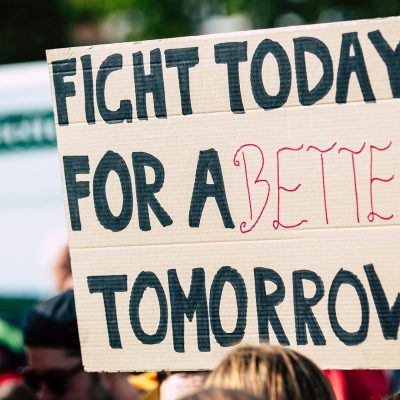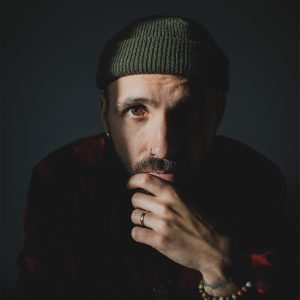
Storytelling + Art: Powerful Tools for Social Change
Storytelling + Art: Powerful Tools for Social Change
8:58am
Thursday, April 25, 2024
From December 3 to 10, the 9th annual Human Rights Film Festival (HRFF+) will connect audiences with social justice-focused art, films, workshops and more. This year, the Toronto International Festival of Authors is proud to co-present two incredible HRFF+ events, JAYU STAGES: Poetic Talk & Performance Showcase and JAYU SLAMS: Individual Poetry Slam, on December 5. We asked Gilad Cohen, the Founder and Executive Director of JAYU (the organization behind the film festival), to discuss the power the arts have on connecting audiences to human rights issues.
By: Gilad Cohen
In 2008, I was living in South Korea and signed up for a day trip in North Korea. I decided to go because it was an opportunity to visit a place that few people ever get to see. For me, it was as close an experience as I’d ever get to visiting Mars.
As far as sightseeing goes, the trip was mostly unremarkable, but from a logistics standpoint, it was unlike anything I had ever experienced. My passport was taken away from me, and I didn’t get it back until the trip was over. I was instructed on what I could and couldn’t photograph, and to make matters more intense, armed agents that accompanied us throughout the trip went through each of my photos making sure I had listened to their rules.
When I got home, I felt more confused than informed and after Googling “what the heck is North Korea?” I was horrified to learn that millions had starved to death since the 1990s, it was illegal to access the internet or leave the country, and there were severe restrictions on people’s basic human rights. As a Jewish person whose family barely survived the Holocaust, what hit me hardest was learning that hundreds of thousands of North Koreans were currently detained in concentration camps. How did I not know about this?
This experience led me to working with North Korean refugees both in Toronto and South Korea and despite the successes that came along with that work, I could never convince my family to care about it as much as I did until one day my mom and I sat down to watch a film on North Korea and she broke down in tears and said, “Wow, I had no idea. What can I do?”
I understood in that moment that there is no better tool we can use to address human rights issues than the arts. It has a unique ability to build empathy, initiate difficult but necessary conversations, and inspire us to reimagine a more equitable world that we all deserve to live in. For thousands of years, we’ve used the arts to protest, challenge power structures, and share our collective stories.
That experience with my mother inspired what is now the Human Rights Film Festival (HRFF+) and in a few days, we will be celebrating our 9th annual 8-day event. This year’s virtual Festival will feature premiere films as well as a live spoken-word poetry slam, workshops, a comedy night, a youth-led photography exhibition, panels, talks, awards, and also a keynote from Black Lives Matter Toronto co-founder, Syrus Marcus Ware. Best of all, the whole Festival is free this year! I encourage you to check out hrff.ca to learn more.
 Since 2008, Gilad Cohen has worked as an artist, public speaker and community mobilizer with a focus on connecting audiences to urgent and compelling stories through multimedia arts. In 2012, Gilad founded JAYU, a charity that serves the arts community through the annual Human Rights Film Festival, The Hum, a human rights podcast which he produces and co-hosts, as well as the iAM Program, an initiative that provides arts and social justice mentorship to more than 200 underserved youth from across the GTA each year.
Since 2008, Gilad Cohen has worked as an artist, public speaker and community mobilizer with a focus on connecting audiences to urgent and compelling stories through multimedia arts. In 2012, Gilad founded JAYU, a charity that serves the arts community through the annual Human Rights Film Festival, The Hum, a human rights podcast which he produces and co-hosts, as well as the iAM Program, an initiative that provides arts and social justice mentorship to more than 200 underserved youth from across the GTA each year.
From December 3 to 10, the 9th annual Human Rights Film Festival (HRFF+) will connect audiences with social justice-focused art, films, workshops and more. This year, the Toronto International Festival of Authors is proud to co-present two incredible HRFF+ events, JAYU STAGES: Poetic Talk & Performance Showcase and JAYU SLAMS: Individual Poetry Slam, on December 5. We asked Gilad Cohen, the Founder and Executive Director of JAYU (the organization behind the film festival), to discuss the power the arts have on connecting audiences to human rights issues.
By: Gilad Cohen
In 2008, I was living in South Korea and signed up for a day trip in North Korea. I decided to go because it was an opportunity to visit a place that few people ever get to see. For me, it was as close an experience as I’d ever get to visiting Mars.
As far as sightseeing goes, the trip was mostly unremarkable, but from a logistics standpoint, it was unlike anything I had ever experienced. My passport was taken away from me, and I didn’t get it back until the trip was over. I was instructed on what I could and couldn’t photograph, and to make matters more intense, armed agents that accompanied us throughout the trip went through each of my photos making sure I had listened to their rules.
When I got home, I felt more confused than informed and after Googling “what the heck is North Korea?” I was horrified to learn that millions had starved to death since the 1990s, it was illegal to access the internet or leave the country, and there were severe restrictions on people’s basic human rights. As a Jewish person whose family barely survived the Holocaust, what hit me hardest was learning that hundreds of thousands of North Koreans were currently detained in concentration camps. How did I not know about this?
This experience led me to working with North Korean refugees both in Toronto and South Korea and despite the successes that came along with that work, I could never convince my family to care about it as much as I did until one day my mom and I sat down to watch a film on North Korea and she broke down in tears and said, “Wow, I had no idea. What can I do?”
I understood in that moment that there is no better tool we can use to address human rights issues than the arts. It has a unique ability to build empathy, initiate difficult but necessary conversations, and inspire us to reimagine a more equitable world that we all deserve to live in. For thousands of years, we’ve used the arts to protest, challenge power structures, and share our collective stories.
That experience with my mother inspired what is now the Human Rights Film Festival (HRFF+) and in a few days, we will be celebrating our 9th annual 8-day event. This year’s virtual Festival will feature premiere films as well as a live spoken-word poetry slam, workshops, a comedy night, a youth-led photography exhibition, panels, talks, awards, and also a keynote from Black Lives Matter Toronto co-founder, Syrus Marcus Ware. Best of all, the whole Festival is free this year! I encourage you to check out hrff.ca to learn more.
 Since 2008, Gilad Cohen has worked as an artist, public speaker and community mobilizer with a focus on connecting audiences to urgent and compelling stories through multimedia arts. In 2012, Gilad founded JAYU, a charity that serves the arts community through the annual Human Rights Film Festival, The Hum, a human rights podcast which he produces and co-hosts, as well as the iAM Program, an initiative that provides arts and social justice mentorship to more than 200 underserved youth from across the GTA each year.
Since 2008, Gilad Cohen has worked as an artist, public speaker and community mobilizer with a focus on connecting audiences to urgent and compelling stories through multimedia arts. In 2012, Gilad founded JAYU, a charity that serves the arts community through the annual Human Rights Film Festival, The Hum, a human rights podcast which he produces and co-hosts, as well as the iAM Program, an initiative that provides arts and social justice mentorship to more than 200 underserved youth from across the GTA each year.
8:58am
Thursday, April 25